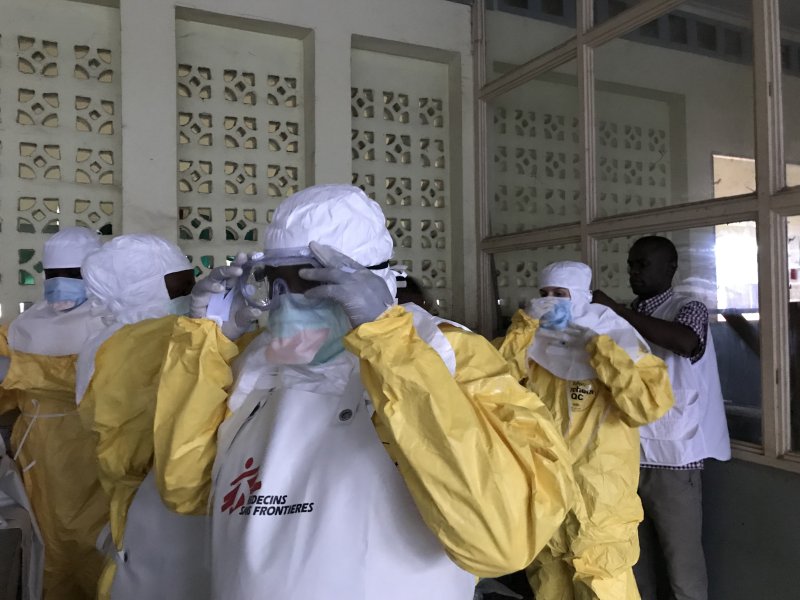Doctors Without Borders said a "climate of distrust" is hampering its treatment of an Ebola epidemic in the Democratic Republic of Congo. File Photo by Louis Annaud/MSF/EPA-EFE
March 7 (UPI) -- Doctors Without Borders said its response to a seven-month Ebola outbreak in the Democratic Republic of Congo is failing due to violence and a climate of distrust in the country.
The medical aid group, known internationally as Medecins Sans Frontieres, and its French acronym, MSF, said it was forced to shut down operations at two treatment centers in Katwa and Butembo last week after successive violence by unknown attackers in a report released Thursday.
"The existing atmosphere can only be described as toxic," MSF International President Dr. Joanne Liu said. "It shows how the response has failed to listen and act on the needs of those most affected."
The report said the tensions have caused people to avoid bringing people infected with Ebola to treatment centers and more than 40 percent of the deaths are still taking place in communities rather than at the centers.
"We have a striking contradiction," Liu said. "On the one hand, we have a rapid and large outbreak response with new medical tools such as vaccines and treatments that show promising outcomes when people come early. On the other hand, people with Ebola are dying in their communities, and do not trust the Ebola response enough to come forward."
A range of issues, including the fact that elections were postponed due to the Ebola outbreak and that police and armed forces have been used to force people to comply with health measures have contributed to the distrust.
MSF's report stated that coercion must no longer be used to enforce such procedures and patients and their families must be "included and empowered" in decisions regarding how to manage the disease in their communities.
"Ebola is a brutal disease, bringing fear and isolation to patients, families, and healthcare providers," Liu said. "The Ebola response needs to become patient- and community-centered. Patients must be treated as patients, and not as some kind of biothreat."
More than 900 cases of Ebola have been reported since the beginning of the outbreak, which became the second largest in history with more than 300 deaths as of January.















